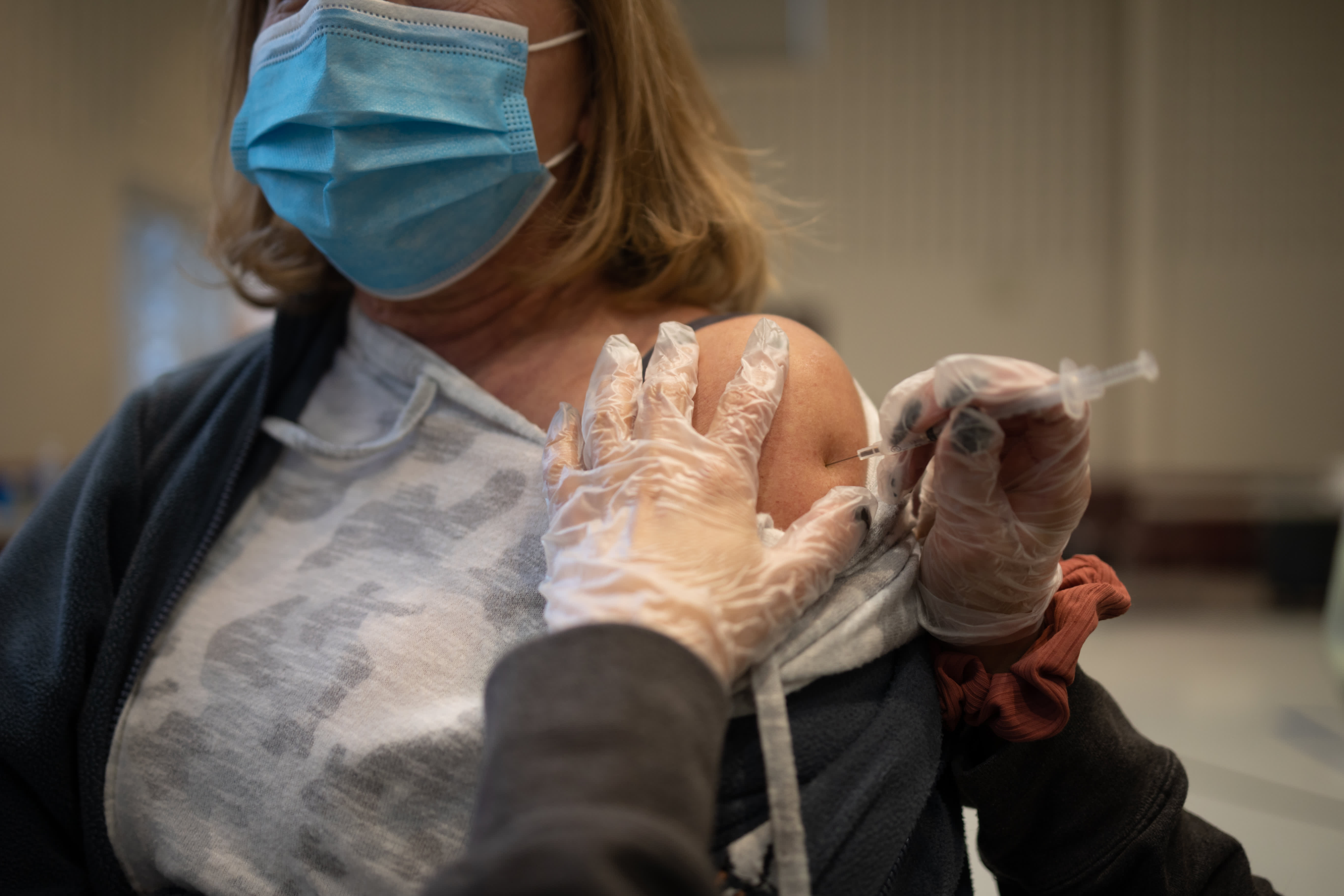Illinois health officials released new number showing just how many people have received the new COVID booster shots in the state during its initial rollout so far.
The numbers come as the state reports another decline in its weekly metrics, though 20 counties remain at a "high community level" for the virus.
Here's what you need to know about the coronavirus pandemic across Illinois today:
Coronavirus in Illinois: Nearly 18K New Cases, 74 Deaths Reported in Last Week
Illinois health officials reported 17,584 new COVID-19 cases over the past week, along with 74 additional deaths, marking a decrease in cases from a week prior, as 20 counties within the state remain at a "high" community level for COVID-19.
The previous week, Illinois reported 19,933 new cases and 64 deaths. The week before that, 26,127 new cases and 70 deaths were reported.
Read more here.
Illinois Reports Highest Vaccine Numbers in Months Following Strong Demand for New COVID Booster Shots
More than 188,000 Illinois residents have been given a dose of the newly-updated bivalent COVID-19 booster shots, which health officials assert will likely be key to curbing an anticipated coronavirus surge in the coming months.
The modified boosters, which contain half the original COVID-19 vaccine recipe and half protection against the newest omicron subvariants, were authorized by federal health regulators at the beginning of September and started being given out days later.
Feeling out of the loop? We'll catch you up on the Chicago news you need to know. Sign up for the weekly> Chicago Catch-Up newsletter.
Read more here.
Gov. Pritzker Announces Change to COVID-19 Requirements in Illinois
Illinois Gov. J.B. Pritzker’s administration on Thursday announced a change to the state’s COVID mitigation strategies.
Among the new guidelines was an update to testing requirements for school and childcare employees. Unvaccinated employees in those settings will no longer be required to test twice weekly.
The change goes into effect Friday, according to the governor's office.
Read more here.
Will COVID Symptoms Shift Heading Into Fall and Winter? What Experts Say to Expect
As COVID symptoms have shifted since the start of the pandemic, many are wondering what to expect next as the variant is expected to continue mutating heading into fall and winter. What are experts watching for?
With the pandemic heading into its third winter, Chicago health experts noted on Tuesday that newer variants can bring changes in symptoms - in fact, they already have.
Read more here.
Which Respiratory Illnesses Are Behind the Recent Surge in Child Hospitalizations in Chicago Area?
A recent spike in child hospitalizations due to respiratory illnesses across the Chicago area has caught the attention of health experts, with colder weather likely to make respiratory illnesses even more prevalent.
As COVID-19 remains a health concern, other common respiratory viruses that often present themselves in common cold symptoms are behind a surge that is occurring significantly earlier than a typical spike in illnesses occurs each year that coincides with colder weather.
Read more here.
What Are the Possible Side Effects of the Omicron-Specific COVID-19 Booster Shots?
With the arrival of the long-awaited COVID-19 booster shots geared to target BA.4 and BA.5 omicron subvariants, many may be curious about its possible side effects.
Well, the new boosters actually may not be as different from what previous renditions of the vaccines entailed in terms of side effects.
Read more here.
Respiratory Illnesses Leading to Early Surge in Child Hospitalizations. Here's What to Know
Fall and winter are usually the times respiratory illnesses spike, but a recent surge in child hospitalizations in the Chicago area has some health officials concerned.
"Right now we're seeing a lot of RSV, we're seeing some other respiratory viruses, you know, lot of kids right now being hospitalized broadly with some respiratory viruses - more traditional ones," Chicago Department of Public Health Commissioner Dr. Allison Arwady said during a Facebook Live Tuesday.
Health experts across the area are reporting a rise in hospitalizations due to respiratory illnesses in children. And some say the COVID pandemic could have an impact on this surge.
Read more here.
Are You Still Contagious With COVID After 5 Days? Here's What We Know
As COVID's incubation period changes, what does that mean for isolation time and how long you are contagious?
During a Facebook Live last month, Chicago Department of Public Health Commissioner Dr. Allison Arwady reported that recent studies have shown the incubation period for COVID has dropped to three days with recent variants.
Read more here.
How Long Are You Contagious With COVID? The Incubation Period Has Changed, Top Doc Says
COVID's incubation period has changed with the extra-contagious BA.4 and BA.5 omicron subvariants, Chicago's top doctor said, but what does that mean for how long you are contagious?
During a Facebook Live last month, Chicago Department of Public Health Commissioner Dr. Allison Arwady reported that recent studies have shown the incubation period for COVID has dropped to three days with recent variants.
Read more here.
Can You Mix and Match Your COVID Booster Shot?
For those who are planning to get a COVID booster shot, will they need to get the same vaccine as their primary series or can they mix and match?
The answer depends.
Read more here.
If You've Already Had a Booster Shot, Can You Get the New COVID Vaccine?
The new COVID vaccines designed to specifically target the omicron variant and its highly contagious subvariants come with plenty of questions, including some from those wondering if they can still get the updated booster even if they already had a booster vaccine?
The answer is yes, as long as your last booster dose was at least two months ago.
Read more here.



